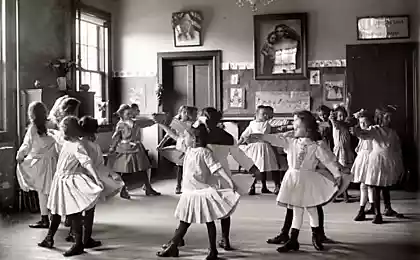193
Right and Wrong Praise
Everyone knows that to motivate a child to study and increase self-esteem, you need to praise him. But how do you do it right?
It can be praised in many ways, including with negative consequences. Any parent is likely to find themselves in this situation: after being praised, the child is embarrassed, disagrees with your assessment, or walks away.
A vivid example of how praise can be harmful, quotes psychologist Haim Ginott in his famous book Parent-Child: The World of Relationships:
One day, 12-year-old Linda, playing a computer game at home, reached the third level in it. Her father, seeing this, exclaimed, “You’re incredible!” You have perfect coordination! You are a real expert in the game”. Linda lost interest in the game and left the room.
Her father’s praise prevented her from continuing, as she said to herself, ‘Dad thinks I’m a great player, but I’m not an expert. I went to the third level because I was lucky. If I start again, I'm not likely to reach even the second level. It is better to stop playing now and remain a winner.”
The praise here was exaggerated: in the image that her father painted in front of her, Linda did not recognize herself. For praise to resonate and motivate new achievements, it must express recognition and approval, not just appreciation. Linda’s father would have been right to say something like, “When you get to the next level, you must be feeling great.”
The effects of praise on children with low self-esteem — those most in need of encouragement — were investigated by researchers in Ohio and Amsterdam. They found that in some situations, praise has the opposite effect: it reduces motivation and self-esteem, rather than raising them. Parents and teachers begin to praise the child even more, and his self-esteem drops even lower.
Psychologists have identified 2 types of praise:
Let’s make a mistake: what’s wrong with “excellent syndrome”
With an emphasis on personality: Praise that emphasizes the child’s personality (“You’re so smart!”)
With a focus on process: Praise that pays attention to a child’s efforts and actions rather than their personal qualities (“You did a really good job today”)
Children with low self-esteem are much more likely to receive praise that relates to their personal characteristics. This usually only makes the situation worse.
It is necessary to praise more often for the work done and diligence - and the child will draw conclusions about his personal qualities himself.
Second, excessively high grades should be avoided. If you often tell your child that he or she has done a job that is “excellent” and “excellent,” he or she will fear betraying your expectations in the future. It is better that the praise be more concrete and realistic, otherwise any task will be perceived as something too responsible and difficult to perform.
How to increase the responsibility of a teenager for their studies
The high school program is fully focused on "girl" thinking
Praise is also a form of evaluation, so you need to treat it carefully. Realistic and moderate praise, which focuses on the process rather than on personal qualities, will make the child more confident and encourage self-improvement. published
Author: Oleg Bocharnikov
Source: vk.com/wall-23183549_4438
It can be praised in many ways, including with negative consequences. Any parent is likely to find themselves in this situation: after being praised, the child is embarrassed, disagrees with your assessment, or walks away.
A vivid example of how praise can be harmful, quotes psychologist Haim Ginott in his famous book Parent-Child: The World of Relationships:
One day, 12-year-old Linda, playing a computer game at home, reached the third level in it. Her father, seeing this, exclaimed, “You’re incredible!” You have perfect coordination! You are a real expert in the game”. Linda lost interest in the game and left the room.
Her father’s praise prevented her from continuing, as she said to herself, ‘Dad thinks I’m a great player, but I’m not an expert. I went to the third level because I was lucky. If I start again, I'm not likely to reach even the second level. It is better to stop playing now and remain a winner.”
The praise here was exaggerated: in the image that her father painted in front of her, Linda did not recognize herself. For praise to resonate and motivate new achievements, it must express recognition and approval, not just appreciation. Linda’s father would have been right to say something like, “When you get to the next level, you must be feeling great.”
The effects of praise on children with low self-esteem — those most in need of encouragement — were investigated by researchers in Ohio and Amsterdam. They found that in some situations, praise has the opposite effect: it reduces motivation and self-esteem, rather than raising them. Parents and teachers begin to praise the child even more, and his self-esteem drops even lower.
Psychologists have identified 2 types of praise:
Let’s make a mistake: what’s wrong with “excellent syndrome”
With an emphasis on personality: Praise that emphasizes the child’s personality (“You’re so smart!”)
With a focus on process: Praise that pays attention to a child’s efforts and actions rather than their personal qualities (“You did a really good job today”)
Children with low self-esteem are much more likely to receive praise that relates to their personal characteristics. This usually only makes the situation worse.
It is necessary to praise more often for the work done and diligence - and the child will draw conclusions about his personal qualities himself.
Second, excessively high grades should be avoided. If you often tell your child that he or she has done a job that is “excellent” and “excellent,” he or she will fear betraying your expectations in the future. It is better that the praise be more concrete and realistic, otherwise any task will be perceived as something too responsible and difficult to perform.
How to increase the responsibility of a teenager for their studies
The high school program is fully focused on "girl" thinking
Praise is also a form of evaluation, so you need to treat it carefully. Realistic and moderate praise, which focuses on the process rather than on personal qualities, will make the child more confident and encourage self-improvement. published
Author: Oleg Bocharnikov
Source: vk.com/wall-23183549_4438























